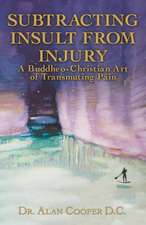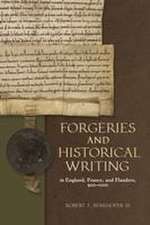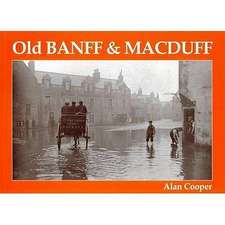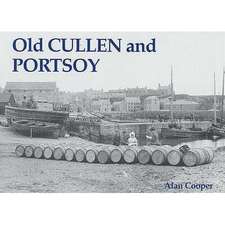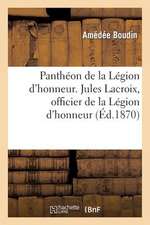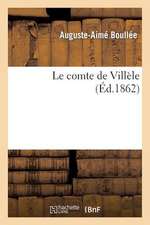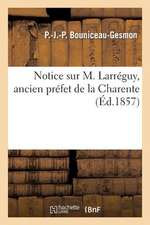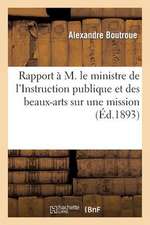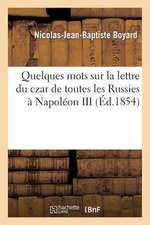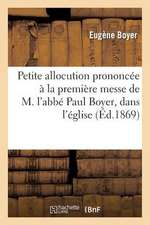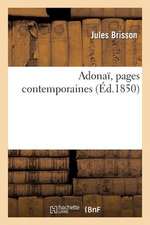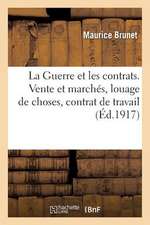The Experience of Power in Medieval Europe, 950–1350
Editat de Robert F. Berkhofer III, Alan Cooper, Adam J. Kostoen Limba Engleză Hardback – 28 mai 2005
Preț: 1000.27 lei
Preț vechi: 1219.84 lei
-18% Nou
Puncte Express: 1500
Preț estimativ în valută:
191.43€ • 199.11$ • 158.03£
191.43€ • 199.11$ • 158.03£
Carte tipărită la comandă
Livrare economică 15-29 aprilie
Preluare comenzi: 021 569.72.76
Specificații
ISBN-13: 9780754651062
ISBN-10: 0754651061
Pagini: 304
Dimensiuni: 156 x 234 x 19 mm
Greutate: 0.45 kg
Ediția:1
Editura: Taylor & Francis
Colecția Routledge
Locul publicării:Oxford, United Kingdom
ISBN-10: 0754651061
Pagini: 304
Dimensiuni: 156 x 234 x 19 mm
Greutate: 0.45 kg
Ediția:1
Editura: Taylor & Francis
Colecția Routledge
Locul publicării:Oxford, United Kingdom
Cuprins
Contents: Introduction, Robert F. Berkhofer III, Alan Cooper and Adam J. Kosto. Part I The Use of Power: Heirs to the Apostles: saintly power and ducal authority in hagiography of early Normandy, Samantha Kahn Herrick; The provisions of Oxford: assessing/assigning authority in time of unrest, Claire Valente; Abbatial authority over lay agents, Robert F. Berkhofer III; Good servants, bad lords: the abuse of authority by Jewish bailiffs in the medieval Crown of Aragon, Elka Klein; Lordship and coinage in Empúries, ca. 1080-ca. 1140, Stephen P. Bensch; Signum meum apposui: notaries and their signs in medieval Languedoc, Alan Friedlander. Part II Power Relations: A charter of Oliba from before his entry into religious life, Paul Freedman; Inheritance of power in the house of Guifred the Hairy: contemporary perspectives on the formation of a dynasty, Nathaniel L. Taylor; Transformations in the power of wives and widows near Montpellier, 985-1213, Elizabeth Haluska-Rausch; Protestations of ignorance in Domesday Book, Alan Cooper; Hostages and the habit of representation in 13th-century Occitania, Adam J. Kosto. Part III Discourses of Power: Abbas and Rex: power and authority in the literature of Fleury, 987-1044, Frederick S. Paxton; Power, personality-and perversity? Robert of Arbrissel (ca. 1045-1116) and his critics, Bruce L. Venarde; Lords and monks: creating an ideal of noble power in monastic chronicles, Jennifer Paxton; The lordship of jongleurs, Carol Symes; Marian monarchy in 13th-century Castile, Amy G. Remensnyder; The re-experience of medieval power: tormented voices in the haunted house of empiricism, Simon R. Doubleday. Index.
Notă biografică
Robert F. Berkhofer III is Assistant Professor of History at Western Michigan University, USA. Alan Cooper is Assistant Professor of History at Colgate University, USA. Adam J. Kosto is Associate Professor of History at Columbia University, USA.
Recenzii
'The theme of the book provides a provocative means to consider medieval topics with fresh techniques and insights.' Church History ’... without a single weak link, the essays here testify to Bisson's influence over an entire generation of scholars, extending his work on Spain, lordship, power and representation in new and often fascinating directions.’ English Historical Review
Descriere
This volume explores the experience of power in medieval Europe. The seventeen essays range geographically from England in the north to Castile in the south, and chronologically from the 10th century to the 14th, and address a series of specific topics in institutional, social, religious, cultural, and intellectual history. Taken together, they present three distinct ways of discussing power in a medieval historical context: uses of power, relations of power, and discourses of power.


